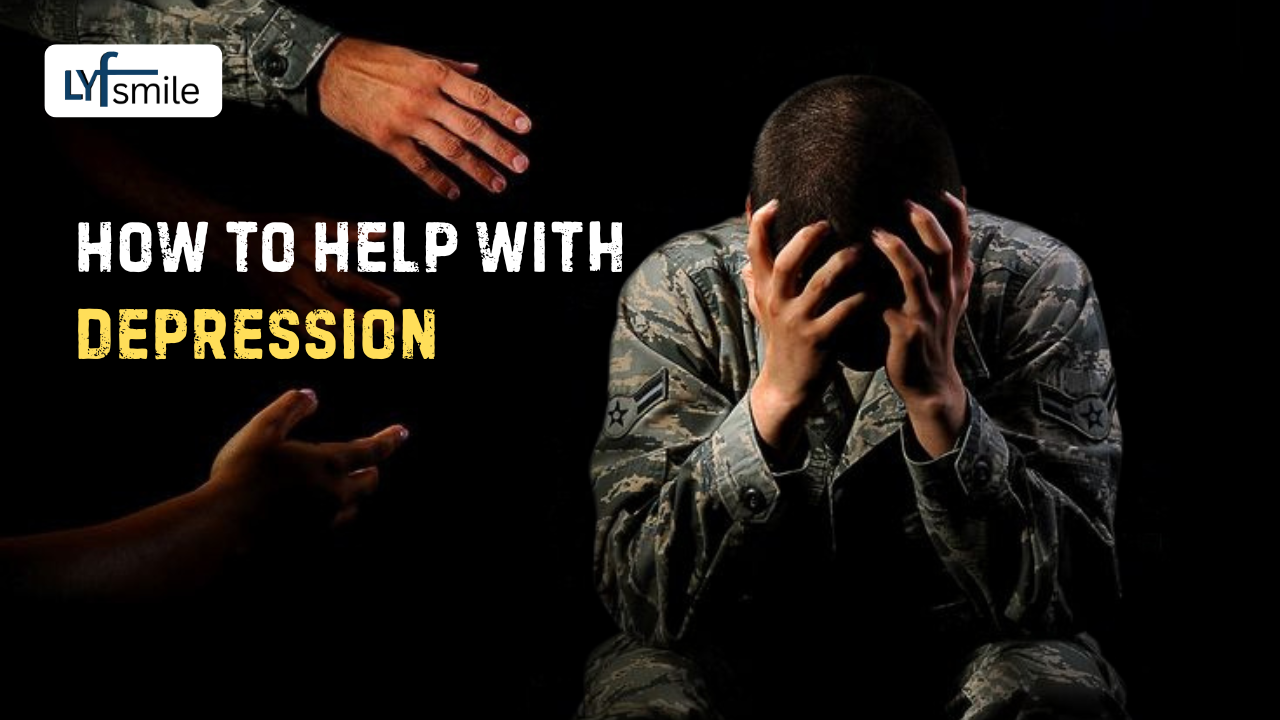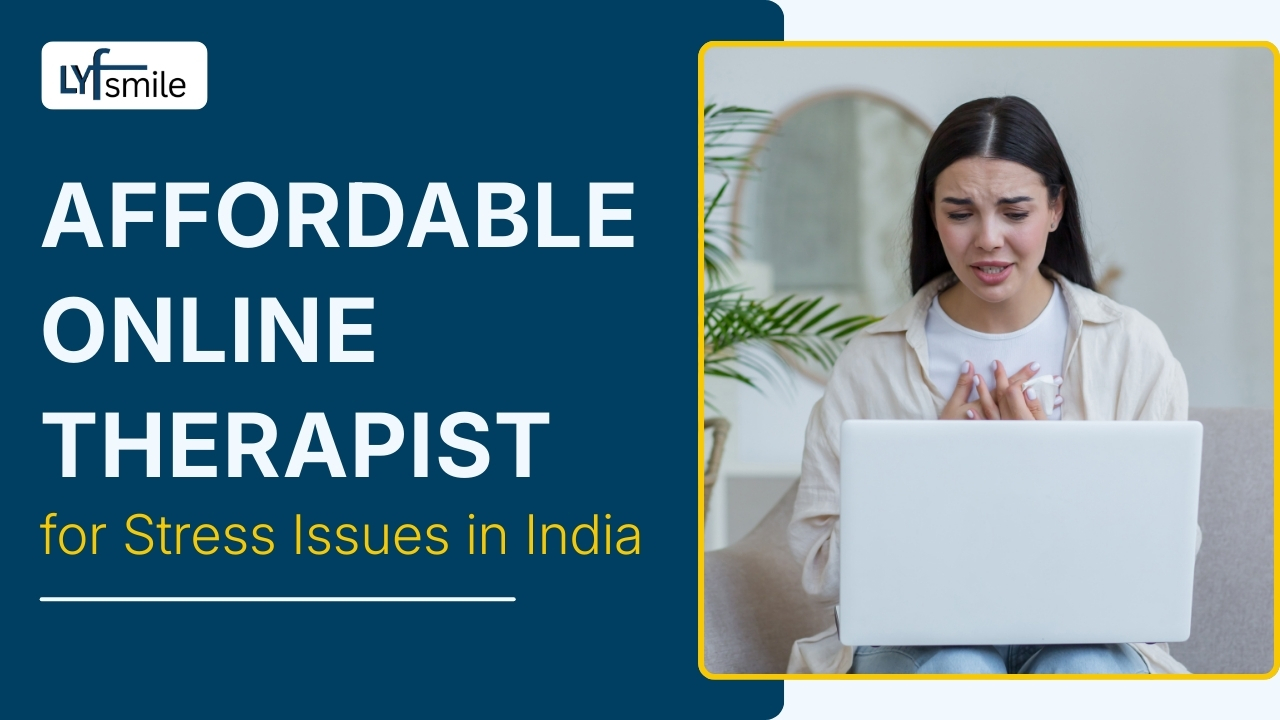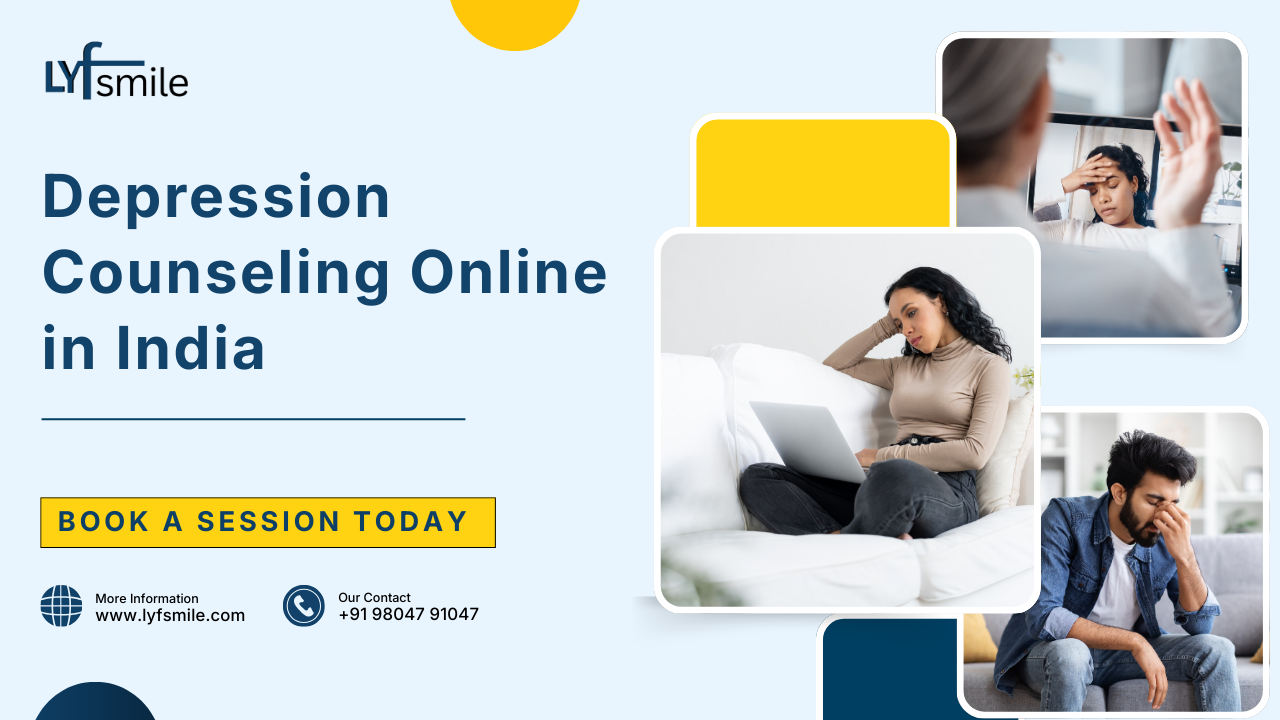
Lakshika Kaushik
How to Help Someone Get Out of Depression with Care & Therapy
Knowing how to help someone get out of depression is one of the most important skills in today’s world. Depression is not just about feeling sad for a few days—it is a serious mental health condition that affects thoughts, emotions, energy, relationships, and daily life. When a loved one is struggling with depression, many people feel unsure about what to say or how to support them. But with the right awareness, patience, and empathy, you can make a positive difference.
What Is Depression and How Does It Affect the Mind

Depression is more than just feeling sad or having a bad day. It is a serious mental health disorder that affects how a person thinks, feels, and handles daily activities. The mind experiences changes in thought patterns, emotional regulation, and even decision-making abilities, which makes it difficult for someone to function normally without support. Understanding these mental impacts is the first step toward knowing how to help someone get out of depression.
How Depression Impacts the Mind
Chemical Imbalances: Neurotransmitters like serotonin, dopamine, and norepinephrine play a crucial role in mood regulation. Depression often involves imbalances in these chemicals, which can lead to persistent sadness and lack of motivation.
Negative Thought Patterns: People with depression tend to have recurring negative thoughts about themselves, their future, and their worth. This cognitive distortion can make it difficult to see positive aspects of life.
Emotional Dysregulation: Depression can intensify feelings of hopelessness, guilt, or irritability, making emotional control challenging.
Cognitive Impairment: Concentration, memory, and decision-making can be affected, making even simple tasks feel overwhelming.
Physical and Behavioral Effects: The mind-body connection means depression can also manifest physically. Fatigue, changes in sleep patterns, altered appetite, and low energy are common, further impacting mental well-being.
Why Awareness is Key in Supporting Depression
Depression is not a weakness—it is a medical condition that requires support and care.
People experiencing depression often feel isolated, hopeless, and misunderstood.
Support from family, friends, or partners can break the cycle of loneliness.
The goal is not to “fix” someone but to walk alongside them in their journey.
Awareness helps reduce stigma and encourages open conversations about mental health.
Common Myths About Depression
Myth 1: Depression is just sadness — Fact: It’s a complex mental health disorder.
Myth 2: People can “snap out of it” — Fact: Recovery takes time and treatment.
Myth 3: Only weak people get depressed — Fact: Anyone, regardless of strength, can suffer.
Myth 4: Talking about depression makes it worse — Fact: Open communication helps healing.
Understanding these facts makes it easier to genuinely support someone without judgment.
First Steps to Help Someone with Depression
Listen actively: Sometimes, just being there without offering solutions is powerful.
Show patience: Recovery is slow; avoid pushing them too hard.
Offer validation: Remind them their feelings are real and valid.
Encourage professional help: Therapy and counselling can provide structured healing.
Be consistent: Small, regular gestures of support matter more than one-time advice.
Learning how to help someone get out of depression begins with small steps of kindness, empathy, and understanding. Each person’s experience is unique, so there’s no one-size-fits-all solution. What matters most is creating a safe, supportive space where they feel valued and not alone.
Best Ways to Help Depression

When it comes to understanding the best ways to help depression, the key is to combine compassion with practical action. While it is tempting to offer quick solutions, depression cannot be solved overnight. Instead, small, thoughtful actions and consistent support can create a strong foundation for recovery.
Supporting someone with depression is not only about listening—it’s also about being patient, encouraging positive habits, and gently guiding them toward professional help. Whether you are a family member, partner, or friend, your support can make the journey of healing less lonely and more hopeful.
Practical Strategies to Support a Loved One
Here are some of the best ways to help depression in daily life:
Listen Without Judgment
Allow them to share their feelings freely.
Avoid saying things like “just cheer up” or “it’s all in your head.”
Active listening shows that you value their emotions.
Show Patience and Understanding
Recovery takes time—progress may be slow.
Celebrate small improvements rather than focusing on setbacks.
Avoid pushing them to be “normal” instantly.
Encourage Healthy Routines
Suggest light exercise such as walking or yoga.
Promote balanced eating and proper sleep schedules.
Encourage hobbies that bring joy, even in small doses.
Be Consistent with Support
Regular check-ins (a simple message or call) mean a lot.
Offer help with small daily tasks to reduce stress.
Consistency builds trust and stability.
Promote Professional Help
Gently recommend therapy or counselling.
If they are open, help them find a local therapist or explore get help for depression online options.
Let them know seeking professional support is a sign of strength, not weakness.
Role of Psychologists and Therapists in Depression Recovery

While emotional support from loved ones is essential, professional psychological help is often the turning point in recovery. Psychologists and therapists provide structured guidance, evidence-based techniques, and a safe environment where individuals can explore their thoughts and feelings without fear of judgment.
Psychologists
Trained to assess and understand the root causes of depression.
Use methods like Cognitive Behavioral Therapy (CBT), which helps reframe negative thought patterns.
Teach coping strategies that empower patients to manage depressive episodes better.
Therapists / Counsellors
Provide emotional support and a safe space to talk.
Focus on problem-solving and managing stress.
Work with clients to set achievable goals and rebuild confidence.
Why Therapy Works
Helps break the cycle of negative thoughts and hopelessness.
Encourages long-term emotional resilience, not just temporary relief.
Provides tools to handle relapses and prevent worsening symptoms.
Seeking therapy is not a sign of weakness but a powerful step toward healing. In fact, combining personal support with professional guidance is often the most effective way to help someone come out of depression.
Learning the best ways to help depression means combining empathy, practical actions, and psychological support. When you provide a non-judgmental space, encourage healthy habits, and support professional guidance, you become a vital part of someone’s healing journey.
Supporting Different People in Depression
Every person’s journey with depression is unique, and so is the support they need. Understanding how to help a depressed person often depends on your relationship with them. Whether it’s a parent, sibling, partner, or friend, the approach must be sensitive, patient, and personalized.
How to Help Your Boyfriend with Depression
Supporting a partner with depression can feel challenging because you want to be their strength while also protecting your own mental health.
Show consistent affection: Small gestures like hugs, encouraging words, or spending quality time can reassure him that he’s not alone.
Encourage open conversations: Let him share without fear of being judged or dismissed.
Balance support and space: Give him time to process emotions while reminding him of your presence.
Promote therapy together: Suggest attending counselling sessions as a couple or individually. Booking a session with a licensed psychologist or therapist can provide structured guidance and coping strategies.
Avoid blame: Depression is not his fault, and reassurance can ease his guilt.
How to Help My Depressed Brother
Siblings often share a strong bond, but depression can create distance if not addressed. Learning how to help my depressed brother means being both supportive and understanding of his personal space.
Be a patient listener: Offer him a safe space where he can express feelings without interruption.
Involve him in small activities: Encourage casual outings like a walk, movie, or gaming session.
Look out for warning signs: Sudden withdrawal or harmful thoughts should be taken seriously.
Motivate healthy habits: Exercise, proper sleep, and hobbies can help boost his mood.
Support professional help: Suggest talking to a therapist or psychologist. Booking online sessions can make therapy accessible even if visiting a clinic is difficult. Therapy can guide him in understanding triggers and managing emotions effectively.
How to Help Depressed Elderly Parents
Older adults face unique struggles such as loneliness, health issues, or loss of independence. Knowing how to help a depressed elderly parent requires empathy and practical solutions.
Spend quality time: Regular visits or calls reduce feelings of isolation.
Encourage social connection: Suggest joining senior groups, community events, or hobby clubs.
Check medical health: Sometimes depression is linked to chronic illness or medications.
Simplify daily life: Assist with tasks like shopping, cooking, or appointments.
Promote professional help: Booking therapy with a geriatric psychologist or therapist can help your parent navigate emotional challenges and provide coping strategies specific to elderly depression.
How Can I Help a Friend with Depression
Friendship becomes truly valuable when someone is struggling. Asking how can I help a friend with depression shows care and responsibility.
Be present: Even a simple message like “I’m here for you” can mean a lot.
Avoid toxic positivity: Instead of saying “be happy,” acknowledge their pain.
Invite without pressure: Ask them to join activities but respect their choice if they decline.
Watch for risk signs: If your friend talks about self-harm, encourage immediate professional help.
Encourage therapy: Suggest booking a session with a licensed therapist or psychologist. Therapy helps your friend develop coping skills, manage stress, and rebuild confidence in a structured and supportive environment.
The Common Thread
Whether it’s a partner, sibling, parent, or friend, the foundation of support is the same: empathy, patience, and encouragement. Professional guidance from psychologists or therapists complements your personal support, providing tools, coping strategies, and emotional safety that are critical for long-term recovery. Booking online sessions makes therapy accessible, even for those with busy schedules or mobility issues.
Helping Yourself with Depression

Sometimes, the most important question is How do I help myself out of depression. Supporting yourself during a depressive episode is equally crucial as supporting others. Self-care, understanding your emotions, and seeking professional help are essential steps toward recovery.
Depression can make everyday tasks feel overwhelming. Recognizing that you need help is not a weakness—it is a courageous step toward healing. By combining self-care habits with professional guidance, you can regain control over your emotions and improve your overall well-being.
Practical Self-Help Strategies
Here are effective ways to manage depression on your own:
Establish a daily routine:
Set consistent wake-up and sleep times.
Include small tasks each day to maintain a sense of accomplishment.
Engage in physical activity:
Light exercises like walking, yoga, or stretching can improve mood.
Regular activity increases endorphins, which naturally boost mental health.
Practice mindfulness and meditation:
Techniques like deep breathing or guided meditation can reduce stress.
Journaling thoughts and emotions helps process feelings in a healthy way.
Connect with supportive people:
Share your feelings with friends, family, or support groups.
Avoid isolation, even if it feels challenging.
Set realistic goals:
Break tasks into smaller, achievable steps.
Celebrate small successes to maintain motivation.
Seeking Professional Support
While self-help strategies are important, professional guidance can significantly enhance recovery. Booking sessions with a psychologist or therapist provides:
Structured methods to manage depressive thoughts.
Cognitive-behavioral techniques to reframe negative thinking.
Emotional support in a safe, judgment-free environment.
Guidance on coping with specific triggers and long-term resilience.
If visiting a clinic is difficult, you can get help for depression online through teletherapy or virtual counselling sessions. Online therapy allows flexibility, privacy, and access to trained professionals from home.
Additional Tips for Self-Help
Limit exposure to negative news or social media.
Maintain a balanced diet rich in nutrients that support mental health.
Practice hobbies or activities that bring joy, even in small doses.
Track mood changes to understand triggers and progress.
Reach out immediately if experiencing thoughts of self-harm—seek professional help without delay.
Key Takeaway
Learning how can I help myself with depression requires patience, self-compassion, and the willingness to seek both personal and professional support. Combining daily self-care habits with therapy, whether in-person or online, ensures a more effective and sustained recovery. Remember, acknowledging your struggles and taking steps toward help is a sign of strength, not weakness.
Helping Friends and Encouraging Professional Support
Knowing how can I help a friend with depression is an important skill for anyone who wants to make a difference in a loved one’s life. Friends often provide the first line of emotional support, but knowing the right approach ensures your help is effective and safe—for both you and your friend.
Depression can make friends feel distant or withdrawn. Your presence, patience, and understanding can help bridge that gap. At the same time, knowing when to encourage professional help is crucial for their long-term recovery.
How to Support a Friend with Depression
Be Present and Available
Send regular messages or calls to show you care.
Listen actively without trying to “fix” everything.
Respect their space while letting them know you are there.
Avoid Toxic Positivity
Instead of saying “just be happy,” acknowledge their feelings.
Validate their emotions and let them know it’s okay to feel sad.
Encourage Professional Help
Gently suggest booking a session with a therapist or psychologist.
Explain how therapy provides structured coping strategies, guidance, and a safe environment to explore emotions.
Highlight options to get help for depression online, making access easier and private.
Watch for Warning Signs
Take any mention of self-harm or suicidal thoughts seriously.
Help them contact professionals immediately if they are in danger.
Celebrate Progress
Recognize small steps your friend takes toward healing.
Offer encouragement and positive reinforcement to motivate recovery.
The Role of Combined Support
The most effective approach for anyone dealing with depression involves a combination of:
Personal support from friends and family – providing empathy, patience, and consistent care.
Professional support from psychologists and therapists – offering structured guidance, coping strategies, and safe spaces to process emotions.
Self-help and self-care practices – daily routines, mindfulness, physical activity, and healthy habits.
By integrating all three, recovery becomes more sustainable, and the person dealing with depression can feel empowered rather than isolated.
The Best Way to Help Someone with Depression: Gift a Therapy Session

One of the most thoughtful ways to support someone struggling with depression is by gifting a therapy session through a trusted platform like LyfSmile. This approach goes beyond material gifts and shows that you genuinely care about their mental well-being. Therapy provides structured guidance, emotional support, and tools to manage depressive thoughts, making it a meaningful gesture that can have a lasting impact.
Why Gifting Therapy Works
Shows Genuine Care: Offering a therapy session communicates that you prioritize their mental health and emotional well-being.
Encourages Professional Help: Many people hesitate to start therapy. A gift can gently motivate them to take the first step.
Accessible Options: LyfSmile provides both online and in-person sessions with licensed psychologists and therapists, making therapy convenient and flexible.
Structured Guidance: Sessions help the person develop coping strategies, understand triggers, and learn practical tools to manage depression.
Safe and Private: Therapy ensures a judgment-free environment where your loved one can openly share feelings and thoughts.
How to Gift a Therapy Session with LyfSmile
Choose the Package: LyfSmile offers various therapy packages suitable for beginners or ongoing sessions.
Schedule Flexibly: Sessions can be booked online, allowing the person to attend at their convenience.
Personalize Your Gift: Include a supportive note encouraging them to prioritize their mental health.
Follow Up Supportively: Respect their pace, but check in gently to see how the sessions are helping.
Gifting a therapy session through LyfSmile is more than just a gift—it’s a step toward healing, self-awareness, and long-term mental well-being. By combining your personal support with professional guidance, you provide a holistic approach that can make a real difference in someone’s journey to recovery.
Conclusion
Learning how to help someone get out of depression involves understanding, patience, and action. Whether it’s your partner, sibling, parent, or friend—or even yourself—the combination of emotional support, lifestyle adjustments, and professional therapy is key to overcoming depression.
Be empathetic and patient: Small gestures of care have a big impact.
Encourage therapy: Psychologists and therapists provide essential tools and guidance.
Support self-care: Healthy routines, mindfulness, and hobbies boost mental well-being.
Use online resources: Booking online sessions makes therapy accessible and convenient.
Depression may feel overwhelming, but with the right support and professional help, recovery is possible. Take the first step today—reach out, offer support, or book a session with a licensed psychologist or therapist through trusted platforms like LyfSmile. Every action, no matter how small, contributes to hope, healing, and a brighter tomorrow.








